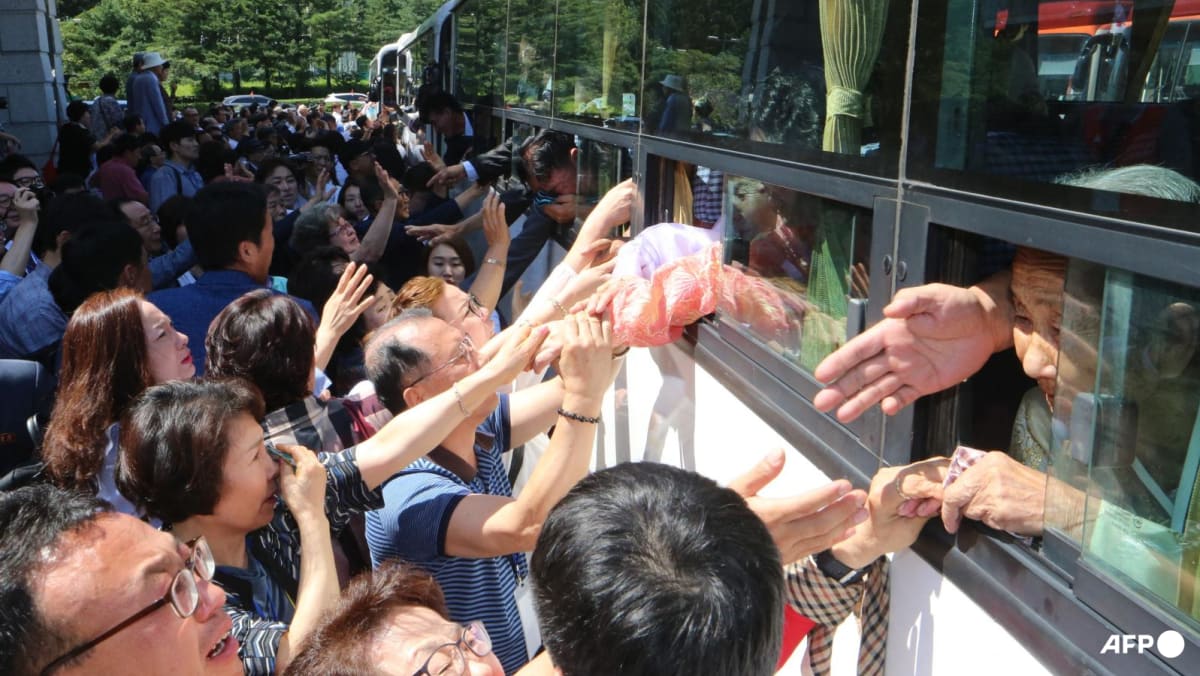Asia
North Korea destroys family reunion centre in ‘inhumane act’, Seoul says

The Demolition of a Symbolic Reunion Center: A Blow to Korean Families
In a move that has sparked widespread condemnation, North Korea has begun demolishing the Mount Kumgang Reunion Center, a site that held profound emotional significance for thousands of Korean families separated by the Korean War. This center, nestled in the scenic Kumgang mountains, was a rare place where families torn apart by the 1950-53 conflict could briefly reunite. The demolition has been met with sorrow and anger, particularly from South Korea, which has labeled the action as "inhumane." This decision not only erases a symbol of hope but also dashes the faint hopes of many elderly individuals who have spent decades longing to see their loved ones again.
The Legacy of the Korean War and the Division of a Nation
The Korean War, which ended over 70 years ago, left an indelible mark on the peninsula, resulting in the separation of millions of families. The war concluded with an armistice rather than a peace treaty, leaving North and South Korea technically still at war. This ongoing state of conflict has prohibited direct civilian exchanges, effectively cutting off communication between families. For many, the Mount Kumgang Reunion Center was their only lifeline, offering a glimmer of hope for reunification. The center, which hosted its first reunions in 1985, became a poignant reminder of the human cost of the division. Over the years, it facilitated tearful meetings where families could briefly reconnect, sharing stories and memories before parting ways again.
The Emotional Weight of Family Reunions
The reunions at Mount Kumgang were more than just events; they were deeply emotional experiences that highlighted the enduring pain of separation. These meetings were often televised, showcasing the raw emotion as elderly individuals clasped hands, hugged, and wept with long-lost relatives. The reunions were a testament to the resilience of family bonds, even in the face of enforced separation. However, these gatherings were not without political undertones. North Korea often used them as bargaining chips in inter-Korean relations, allowing them to occur sporadically and with little warning. The last such reunion took place in 2018, leaving many families in a state of limbo, unsure if they would ever see their loved ones again.
The Impact on Separated Families
The demolition of the reunion center is a harsh reminder of the fragility of hope for these families. According to South Korea’s unification ministry, over 130,000 South Koreans have registered as members of separated families since 1985. As of 2025, approximately 36,000 of these individuals are still alive, many of whom are now in their 80s and 90s. Time is of the essence, as the window for potential reunions is rapidly closing. The emotional toll on these families is immense, with many expressing feelings of desperation and despair. The uncertainty of whether their relatives are alive or deceased adds to their suffering, a pain that the reunions, however brief, had temporarily alleviated.
A Unilateral and Inhumane Decision
South Korea has strongly condemned North Korea’s decision to demolish the reunion center, calling it an "inhumane act" that disregards the heartfelt wishes of separated families. A spokesperson for the unification ministry expressed regret and urged an immediate halt to the demolition, emphasizing that North Korea’s actions are unjustifiable. The move is seen as a significant setback for inter-Korean relations, which have been strained in recent years. The reunions, though infrequent and politically motivated, were a crucial link between the two nations, symbolizing the possibility of reconciliation and unity. Their removal leaves a void that may never be filled.
Looking Ahead: The Future of Family Reunions
The demolition of the Mount Kumgang Reunion Center casts a dark shadow over the future of family reunions. For many, this site represented the last hope of reuniting with loved ones before it’s too late. The reality is stark: with each passing year, fewer of the original separated family members remain alive. The handful who were fortunate enough to participate in past reunions now face the possibility that their experience may never be replicated. This decision by North Korea has not only destroyed a physical structure but also shattered the fragile hopes of countless families. It serves as a poignant reminder of the ongoing human cost of the Korean conflict and the need for renewed efforts to address this unresolved chapter in history.











